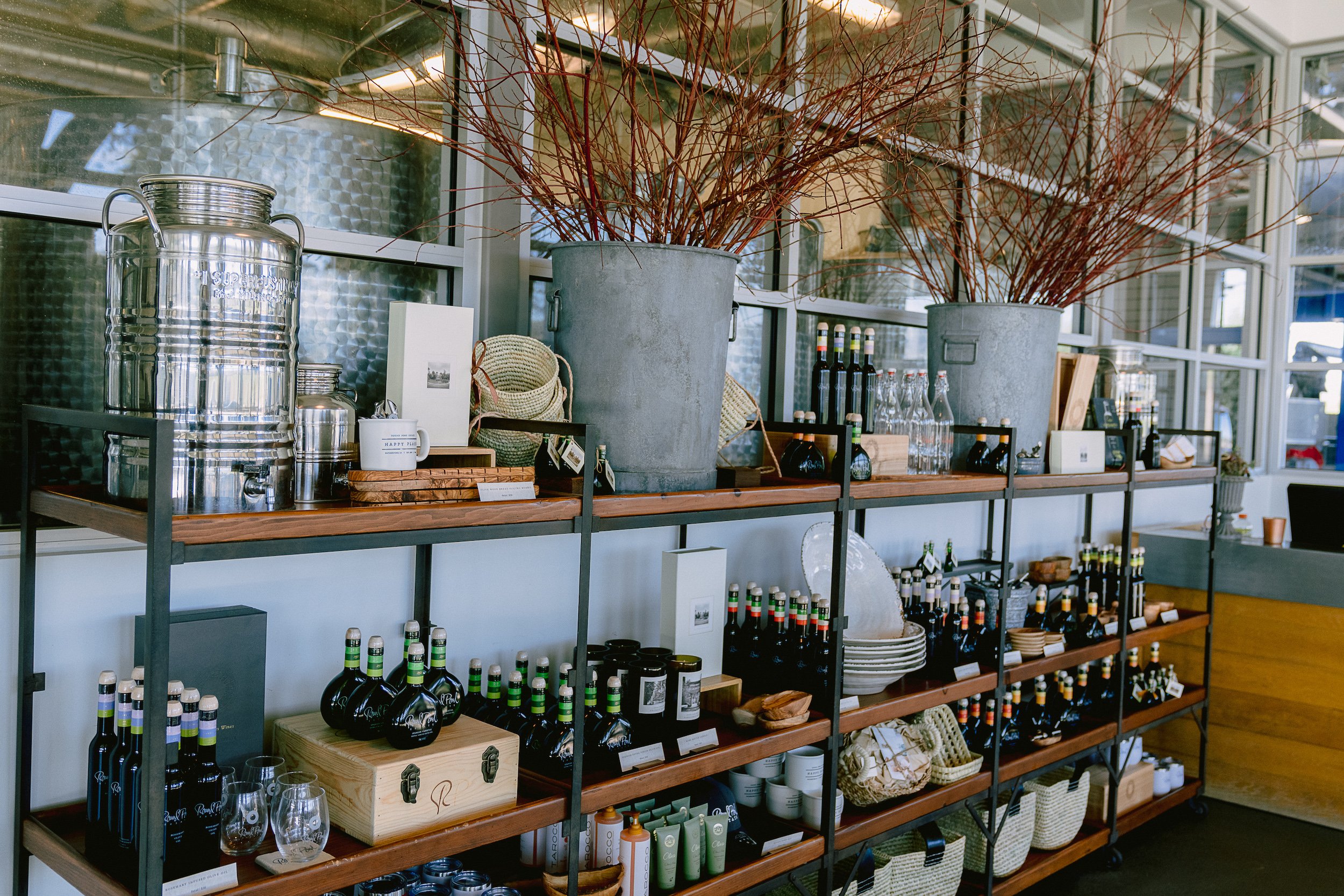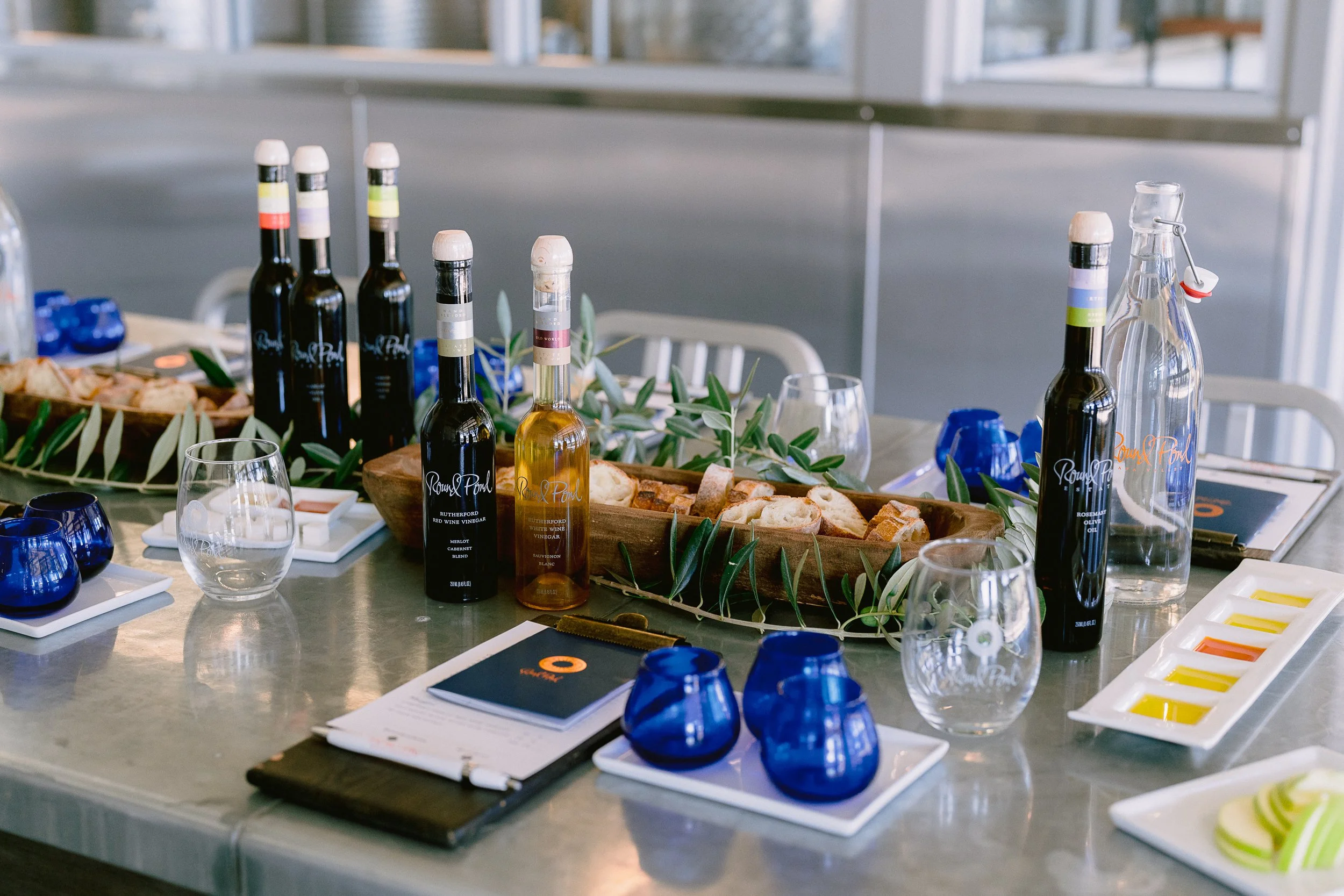Wine Turns to Vinegar at Round Pond Estate—and That’s a Good Thing
The Napa Valley estate puts the same care into its wine vinegars as its acclaimed wines and olive oils.
Round Pond owners Ryan and Miles - courtesy of Round Pond
The idea of wine turning to vinegar is often thought of as a negative occurrence, but at Round Pond Estate in the Napa Valley, the transformation is a welcome one. Set in the region’s renowned Rutherford district, the estate produces a lot more than high-end Cabernet Sauvignon.
The 468-acre property is home to more than 350 acres of cabernet sauvignon, sauvignon blanc, merlot and petit verdot vines, along with more than 2,000 Mediterranean olive trees. This agricultural bounty goes into Round Pond’s award-winning estate wines, olive oils, and wine vinegars.
First Came the Wine, then Olive Oil, then Vinegar
The vinegars, of course, begin with wine. Round Pond founders Bob and Jan MacDonnell bought their first Rutherford vineyard in 1983 and over the decades, they earned a reputation among local vintners for growing some of the region’s best wine grapes.
In 2004, the family began using some of its estate-grown grapes to make varietal red wine vinegar—a fitting partner for its estate-grown, extra virgin olive oil. With an eye toward making an artisan offering equal to Round Pond’s other products, the family crafts its vinegars using the Orleans method which dates back to the Middle Ages, named for the small French town known as the “city of vinegars.”
“This is an ancient and natural process for making the best vinegars,” explains second-generation Round Pond owner Ryan MacDonnell, who now runs the Round Pond operation with her brother Miles. “The method complements our approach in that it requires making a fine wine, naturally aging it in French oak barrels as acetification [the conversion into vinegar] takes place, and allowing it to age over a period of time.”
How Round Pond Makes Vinegar
Round Pond vinegars and oils courtesy of Round Pond
To kick off the process, Round Pond introduces a “mother culture” acetobacteria to the wine that transforms it into vinegar. After 10 months of barrel aging to add depth and complexity, the production team bottles the individual lots by hand. Varietal vinegars include sangiovese, a nebbiolo-petit verdot blend, sauvignon blanc white vinegar, and a cabernet sauvignon-merlot blend.
As with everything that goes into Round Pond’s estate products, the choice of varieties for the vinegars was made with intention. “We picked these combinations to highlight the vast differences in flavor profile that vinegar can take,” says MacDonnell. “When we started making vinegar in the early 2000s, there was a perception that all vinegar tasted the same. We wanted to change that by using high quality grapes to show that excellent vinegar can be as nuanced as fine wine.”
In keeping with that philosophy, Round Pond harvests grapes for its vinegars on the same timeline as the fruit for the family’s wines.
“The basis of making a great wine and a great vinegar is the same; it all starts in the vineyard,” says MacDonnell. “Thus, we harvest the cabernet sauvignon when it is ripe and the merlot when it is ripe.” After crafting the best possible wines from each variety, the team then blends the vinegars individually to create the final blends.
Tasting, Trying and Buying
Round Pond vinegars courtesy of Round Pond
The vinegars are available at the estate and through the company website. Visitors to Round Pond can sample the vinegars, along with wine and olive oil, through various culinary experiences offered on the lush Rutherford estate. For those looking for a truly new experience, learning how to taste wine vinegar might just be the highlight; to sample the vinegar, tasters dip a sugar cube into the liquid and then suck the vinegar from the cube.
“It’s fun to taste vinegar as you use a sugar cube to mask the acid,” says MacDonnell. “That way you can truly taste the different flavor profiles of the blends.”
Highlighting those distinctions are what it’s all about for Round Pond, whether they’re making fine wine or turning it into vinegar.



